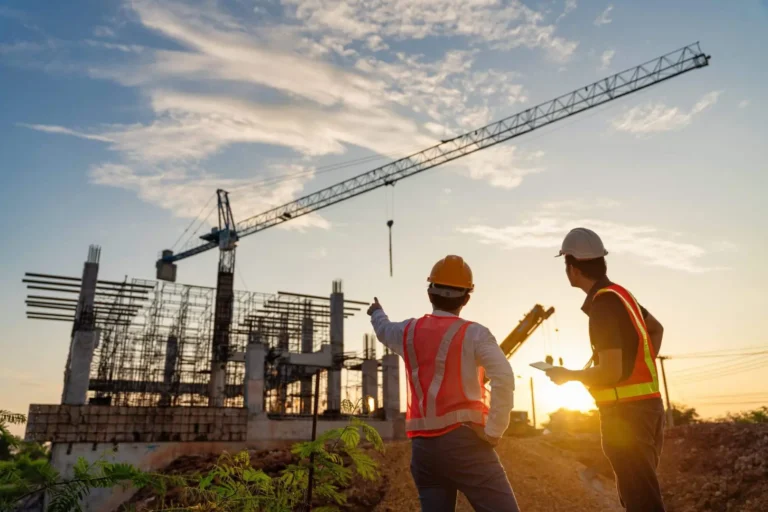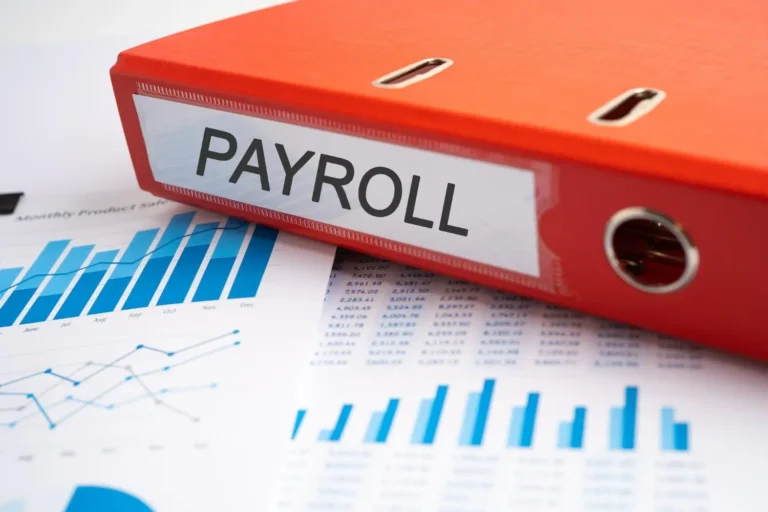Historically, the Construction Industry Scheme has been a subject of interest to tax authorities in the UK. Due to the scale of the industry, prevalence of undeclared income and serious compliance issues, it comes as no surprise that HMRC has been emphasizing on this particular industry.
Not to mention many incidences of tax evasion that have been detected, this eventually prompted HMRC to introduce new legislation to regulate ‘Construction Industry Scheme’ (CIS).
This article will give an overview of the Construction Industry Scheme and provide a comprehensive guide to the different aspects of the scheme.
What is Construction Industry Scheme?
The Construction Industry Scheme (CIS) is a government scheme designed to avoid tax evasion and regulate businesses operating in the construction industry.

Contractors and subcontractors need to understand the scheme and the different roles and responsibilities associated with it.
The main aim of this scheme is to ensure the construction business aka subcontractors (subbies) pays the correct amount of tax and National Insurance Contributions (NICs).
Who Needs to Register for the Construction Industry Scheme?
In order to avoid penalties for non-compliance and ensure that their payments and deductions are accurate, contractors and subcontractors working in the construction industry are required to register for the Construction Industry Scheme (CIS).
Contractors
If you are a mainstream contractor or deemed contractor, you must register for CIS.
Who is Mainstream Contractor?
A mainstream contractor is the one whose core business is construction and who hires and pays another business to carry out the construction work.
This Includes:
- Property developers.
- Speculative builders.

Who is Deemed Contractor?
To be counted as a Deemed Contractor, the entity must have had an expenditure of £3m in construction operation in the past 12 months.
This Includes:
- Local authorities.
- Government departments.
- Non-construction business.
- Housing association.
- Commission for the development of the new town.
For Example,
ABC Ltd is a property investor. ABC recently purchased a large commercial building that was in poor condition. It incurs £4.1m to restructure it into a flat system.
ABC Ltd. exceeded the £3m threshold and is required to register as a contractor for CIS.
Subcontractors
A subcontractor is a self-employed business or limited company that a contractor engages to perform the construction work.
These includes:
- Corporates, self-employed businesses, or partnerships.
- Local authorities carrying out construction for others.
- Labour agencies providing workforce to a contractor.
- Foreign business undertaking constructions in the UK.
- Gang-leaders.
Unlike contractors, the subcontractors are not forced by law to register under CIS. They can choose either to register or not for the construction industry scheme.
Business that is Both Subcontractor and Contractor
Many businesses often undertake construction work but outsource a part of the construction job to other businesses, either as a lack of time or skilled personnel.
A business that assumes the dual roles of a contractor and subcontractor must register under CIS in both capacities. Further, they abide by the rules of the Contractor when assuming the role of Contractor and abide by the rules of the subcontractor when acting as a subcontractor.

Operations Falling under CIS
Construction Industry Scheme (CIS) requires the Contractor to make a tax deduction when paying a subcontractor for the ‘construction operations’ done under a contract.
So, this leads us to ponder what operations fall within the scope of CIS as a ‘Construction Operations’.
Construction Operations
- Site preparation, site restoration, earth moving, excavation, landscaping.
- Constructions, alternation, extension, demolition, dismantling, repairs building structure.
- Installation of heating, water supply, lightening, air conditioning system.
Non-Construction Operations
- Drilling, digging for or extraction of oil, natural; gas or minerals.
- Soil environment testing, pipeline inspection, professional work of architects or surveyors.
- Manufacture of engineering equipment, plant and machinery.
Invoice Splitting
Some subcontractors may issue separate invoices for construction and non-construction operations to avoid tax deductions on the non-construction portion of the contract work.
With aim of discouraging such invoice-splitting practices, the CIS rules state that if you do multiple jobs for someone under one contract, even if some of the jobs aren’t construction operations, you must still pay taxes under the CIS for all the work done.
Alike construction jobs, the payment for non-construction jobs undertaken within the same contract is also subject to CIS tax deductions.
Contractor’s Obligation under CIS
As a contractor, you have specific obligations which you need to fulfill under the CIS.These obligations are designed to ensure that the scheme operates effectively and that every construction business complies with relevant tax laws.
1. Confirm Subcontractor’s Employment Status
The tax deductions under CIS only apply on the payment made to self-employed sub- contractors.
In cases where the subcontractors are employed, the contractor must operate workplace payroll, with taxes being deducted through Pay as You Earn (PAYE) system.
2. Verify Subcontractors
The contractor must confirm the subcontractor’s registration status with HMRC to know at what rate the CIS deduction is to be made from the subcontractors payment.
The process is called subcontractors verification. Based on the verification status, the rate of deduction may vary for each one.
3. Make CIS Deductions from Payments
The contractor once knows the rate of deduction, it must deduct CIS every time when it pays to the subcontractor. CIS has to be deducted only from the labor portion of the payment.
The deduction may be at 20% or 30% or no deduction if the subcontractor has obtained gross payment status.
4. Submit Monthly CIS Returns
Every month, a contractor must submit CIS Return notifying HMRC about the payments to all subcontractors. Alternatively, where no payments have been made, the Nil CIS Returns must be sent. The return must reach HMRC by the 19th of every month.
5. Maintain Records
As per the CIS regulations, contractors are required to keep their records for a minimum of 3 years after the end of the tax year they belong to. Additionally, they should be able to provide these records if HMRC requests to see them. This is to ensure that contractors are compliant with the CIS rules and regulations.
Contractor’s Obligation Under CIS
Read more about contractor’s unique tax requirements, obligations, and penalties of the CIS.
Subcontractor’s Obligation Under CIS
Despite the subcontractor does not have compliance requirements to the same extent as the contractor, HMRC demands the subcontractor to perform certain obligations.
These include registering with HMRC as self-employed, allowing the contractor to deduct CIS tax, filing tax returns each year, and paying the additional tax due on time.
Any non-compliance can result in penalties or fines to subcontractors.

1. Register with HMRC
The subcontractor that is not registered with HMRC, means HMRC cannot verify their records. To be on the safe side, HMRC requires a CIS deduction at a higher rate of 30% for such subcontractor.
2. Apply for Gross Payment Status
The subcontractor with Gross payment status can receive its payment in full without any tax deduction by the contractor i.e., 0% CIS Deduction.
So as to apply for the gross payment status, the subcontractor must first get registered for the Construction Industry Scheme (CIS).
3. Keep records
The subcontractor should maintain documentation of all the deduction statements supplied by its contractor as proof of the CIS tax deduction it suffered.
Subsequently, they will need the payment & deduction statements to recover all the CIS deductions they suffered.
Subcontractor’s Obligations Under Construction Industry Scheme (CIS)
Learn about the responsibilities that a subcontractor holds under Construction Industry Scheme. Understand the obligations in detail and take a look at some of the most frequently asked questions on the subject.
Repercussions of non-compliance with CIS regulation
Compliance with the Construction Industry Scheme (CIS) regulations is crucial for businesses in the construction industry.
In this part, we take a look at the penalties for late CIS filing, interest charges on late payments or overpayments.
Penalties for Late CIS Filing
HMRC will levy penalties on a cumulative basis for any CIS return filed after the deadline date.
|
Late Payment Duration |
Penalty Amount |
|---|---|
|
1 Day Late |
£100 |
|
2 Months Late |
£100 initial + £200 next |
|
6 Months Late |
£300 initial + £300 next |
|
12 Months Late or More |
£600 initial + £300 next |
Note: If you have not filed your CIS Return for more than 2 months, and your monthly unpaid CIS deduction is more than £6,000 then:
The ‘next £300‘ in the above table would be substituted by 5% of unpaid CIS tax.
Interest on Late Payment and Overpayment
HMRC has recently started charging interest on the CIS deductions payment made after the due date.
In order to ensure impartiality, HMRC also compensates businesses for any sums due to them by paying interest on the repayment.
Current late payment and repayment interest rates
- Late payment interest- 7% (31 May 2023 onwards).
- Repayment interest- 3.5% (31 May 2023 onwards).
Penalties for poor records

It is important for contractors to keep accurate records of payments made under the CIS, not only to avoid penalties but also to ensure compliance with tax laws and regulations.
Dealing with Nil CIS Returns
CIS Inactivity Period
CIS inactivity period is the period where the contractors are not required file monthly CIS return.
Contractors can request an exemption from filing CIS returns with HMRC for a period of six months, provided they are confident that no payments will be made to subcontractors during that time. Instead of submitting a nil CIS return every month, contractors can apply to HMRC for an inactive CIS period.
File future CIS Returns
If the contractor is aware that no payment will go to any of its subcontractors for the next three months, they can submit three future returns. Besides the nil returns, the contractor can also file normal CIS returns for the next three months where the amount of payments to the subcontractor is known.
Claim back CIS Deductions
It is worth noting that subcontractors are eligible to claim back all the Construction Industry Scheme (CIS) deductions that they have faced. However, the process of claiming back these deductions may vary depending on whether the subcontractor is a sole trader, in a partnership, or a limited company.
The exact steps and documentation required may differ based on the type of business entity, so it is important for subcontractors to carefully review the requirements.
Sole Trader/Partnerships
For subcontractors who operate as sole traders or partnerships, it is possible to reclaim all the CIS deductions they have suffered by including them on their self-assessment tax return. This involves providing details of the deductions made under the CIS, which will reduce the final amount of tax owed for the year.
Any outstanding tax must be paid to HMRC by 31st January following the end of the tax year.
In contrast, if there are still any unclaimed CIS deductions the subcontractor can claim repayment of any overpaid tax from HMRC.
Limited Company
In the case of a subcontractor who operates as a limited company, any CIS deductions suffered can be claimed through the company’s monthly payroll system. The company’s total PAYE and NIC liability will be outlined in the Full Payment Summary (FPS), which is submitted via Real Time Information (RTI). To claim the CIS deduction suffered amount, an Employer Payment Summary (EPS) is used.
When the EPS is submitted, HMRC will offset the total tax liability as per the FPS against the CIS deduction claimed. If the subcontractor still owes HMRC after this process, any outstanding tax must be paid by the 22nd of the following month.
Whereas, if HMRC owes to the company, the subcontractor can get money back for any amount paid in excess. The refund request can be made either via online or by post.
Be Careful: When claiming your CIS deductions suffered through Corporation Tax Return. HMRC strictly prohibits this and can even charge a penalty.
Are you tired of dealing with the CIS tax regulations?
Let our top-notch accounting services help you unlock your tax benefits and minimize your final tax liability. Contact our team of professionals now!
Frequently Asked Questions
Contractors
Who is considered as a Deemed Contractor?
If you are not in the construction business but you have spent more than £3m in prior 12 months. You must register for CIS.
How long will you be counted as a Deemed Contractor?
You will continue to count as a deemed contractor if your expenditure on construction work is above £3m within 12 months period.
What is the next step after CIS Registration?
Contractors must submit monthly CIS returns and pay HMRC the CIS tax deducted from subcontractor payments.
How long must the Contractor maintain the records?
The contractors should keep their records for a minimum of 3 years from the end of the tax year to which they belong.
Subcontractors
Are all construction workers subject to CIS tax?
The CIS scheme only applies to self-employed subcontractors and, not to the employed one.
Do Subcontractors need to register under CIS?
If the subcontractor wishes to bypass CIS deductions at a higher rate, it must register under CIS.
What if I’m a Subcontractor without UTR seeking CIS registration?
If you are a self-employed sub-contractor without UTR, you can sign up for Self-assessment and CIS simultaneously.
Is ongoing Subcontractor verification required beyond the initial payment?
If a subcontractor has not been paid or included in prior monthly returns for over two years, the contractor must verify their tax status to see if it has changed.









